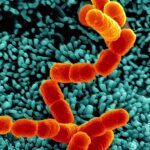Link to Pubmed [PMID] – 6497501
Arch Int Pharmacodyn Ther 1984 Jul;270(1):158-68
The renal effects of clonidine (100 and 500 micrograms/kg s.c.) during acute hypobaric pressure breathing (i.e. a protocol which induces an increase in intrathoracic blood volume) were studied in normal and diabetes insipidus rats. In normal rats, clonidine enhanced the increase in urine flow and urea concentration elicited by hypobaric breathing without change in urinary creatinine level. By contrast, in Brattleboro diabetes insipidus rats, clonidine reinforced the hypoxia-induced mechanisms: oliguria, decrease in both urinary urea and creatinine excretions. During normobaric and hypobaric conditions in normal rats administration of clonidine induced an increase in electrolytes (Na+, K+, Cl-) excretion. In Brattleboro rats, clonidine potentiated the decrease in electrolytes excretion elicited by the hypobaric pressure breathing. Since the diuretic reflex elicited by the hypobaric pressure breathing is due to an inhibition of vasopressin release, the present data show that clonidine induces an inhibition of vasopressin release. However, it is suggested that beside this property clonidine also possesses direct vasoconstrictor actions during hypobaric pressure breathing.

